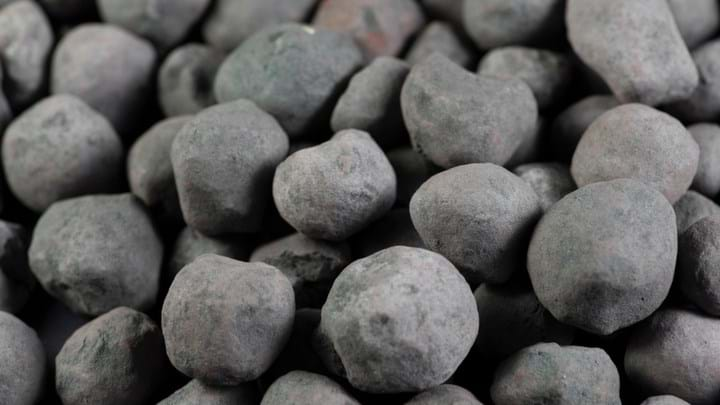Swedish consortium to build fossil-free iron pellet pilot plant

A Swedish consortium is to begin construction on a pilot plant that will use biofuel to achieve fossil-free production of iron-ore pellets. This represents the consortium’s next step in its goal to achieve fossil-free steelmaking by 2035.
In 2016, mining company LKAB, steel manufacturer SSAB, and the energy company Vattenfall partnered up to begin work on the Hybrit initiative in an effort to revolutionise iron and steel production. The aim of the initiative is to develop a fossil-free, ore-based steelmaking process and stop net increase in atmospheric CO2, by 2035. If Hybrit succeeds, Sweden’s CO2 emissions would decrease by 10%.
The next step of Hybrit is to achieve fossil-free production of iron-ore pellets, which are used in steel production, and LKAB is now working to determine the design of next-generation pelletising plants.
The pilot plant will employ biofuels in the pelletising process instead of fossil fuels. It will be built at LKAB’s site in Malmberget, Sweden, where it is expected to reduce fossil-fuel generated CO2 emissions by 40% during the testing period. This reduction corresponds to 60,000 t/y of CO2 emissions. LKAB hopes to eventually achieve CO2 emissions-free pellet production.
The pilot plant is expected to be completed in 2020, and the project is expected to cost about SEK80m (US$8.3m). The first tests are to be conducted in 2021.
Hybrit declined to clarify the role that the biofuels will play in the pelletising process.
Another pilot plant is also currently under construction in Luleå, Sweden, as a part of the Hybrit initiative. The plant will test a steel production process that emits water instead of CO2. Completion of the Luleå pilot plant is also expected in 2020, and first tests are to be conducted in 2021.
The companies in the consortium are also working on other projects. LKAB is investigating alternative heating technologies to replace those currently used in the pellet process, according to CEO and President Jan Moström.
Additionally, according to LKAB, SSAB has decided to switch to an electric arc furnace at a site in Oxelösund, Sweden as a step to becoming fossil-free. The step is expected to reduce SSAB’s CO2 emissions in Sweden by 25%.
Mårten Görnerup, CEO of Hybrit Development AB, said: “Together with our owners, we hope to be able to solve the problem of emissions in the iron and steel industry. The initiative is decisive for Sweden’s ability to meet the targets set out in the Paris Agreement and nationally, and it is our contribution to battling climate change. Fossil-free production of iron ore pellets is an important step towards reaching these goals.”
In 2018, the Swedish Energy Agency provided Hybrit with more than SEK500m towards pilot-scale development of an industrial process. LKAB, SSAB, and Vattenfall are each responsible for a third of the outstanding costs.
Recent Editions
Catch up on the latest news, views and jobs from The Chemical Engineer. Below are the four latest issues. View a wider selection of the archive from within the Magazine section of this site.




